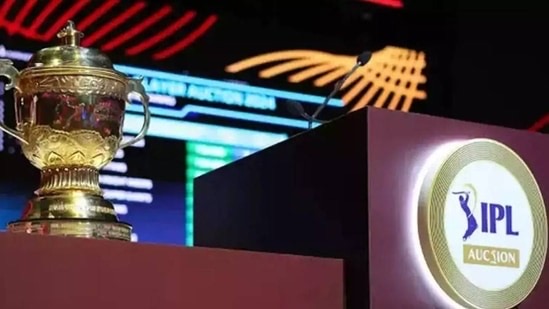Ahead of the start of the IPL 2025 mega auction in Jeddah, we take look at some of the key rules. The mega auction for the 2025 season of the Indian Premier League (IPL) is all set to begin on Sunday, November 24, in Jeddah, Saudi Arabia. This is the only second time an IPL auction is being held outside India, the previous being in 2024 in Dubai.
A total of 574 players will go under the hammer on Sunday and Monday. The list includes as many as 48 capped Indians, where all eyes will be on India stars Rishabh Pant, KL Rahul and Shreyas Iyer, all of whom are in the INR 2 crore list. The list also comprises 193 capped international players.
However, with the 10 franchises retaining a total of 46 players, only 2-04 slots will be filled during the two-day mega event, with teams having a cap of just 25 players in a squad. The rule also specifies that each squad can only comprise eight overseas players, implying only 70 international cricketers will be fortunate to grab an IPL contract on November 24 and 25.
What is the RTM card?
The IPL Governing Council reintroduced the Right-To-Match card after it was last used in the mega auction in 2018. It will allow franchises to retain one of the players they had released at the auction, provided they did not retain a full quota of six players. Based on the rule, a franchise can use the option to match the highest bid for the player at the auction, who was part of their squad in the previous season. However, in a major twist for this edition of the auction, IPL will allow the team placing the original bid on the player to go one bid higher after the RTM card is used. If the franchise then considers to match the higher bid at the auction, they will retain the player, or else the player will join the team placing the original bid. Only Rajasthan Royals and Kolkata Knight Riders won’t be allowed to use the RTM at this auction.
Which players will be presented first?
The IPL auction process will begin with two marquee sets, comprising six players each. The first set has three overseas players, while the next has just two. But all eyes will be on Pant and Iyer, both part of the opening set, while Rahul is in the second set.
The marquee sets will be followed by a list of capped players based on their specialisations: batters, all-rounders, wicketkeepers, fast bowlers, and spinners. That will be followed by uncapped players, again based on their specialisations.The process will eventually end with the accelerated auction. On Day 1 of the event, first-12 sets and 84 players will go under the hammer.
The process,will be as follows: the two marquee sets, followed by lunch, then capped batters, all-rounders, and wicketkeepers. This will be followed by a 15-minute recess. Next will be capped bowlers, then another break and then the first set of uncapped players. Day 2 will comprise the rest of the players. The process will remain the same until the 116th player, followed by the accelerated auction.
What is the accelerated auction?
Despite 574 players being shortlisted for the auction list, every player is unlikely to go under the hammer. The accelerated auction process will hence begin after the 116th player, making Ricky Bhui (117th), part of the second list of uncapped players, will be the first player as part of the accelerated auction process.
This part of the auction will be held in two parts. In the first, all franchises will be asked to list their preferred players – from 117 to 574 – to be presented during the accelerated auction process. The second part will comprise all players on the list who were either not sold or not presented during the first accelerated auction process.



